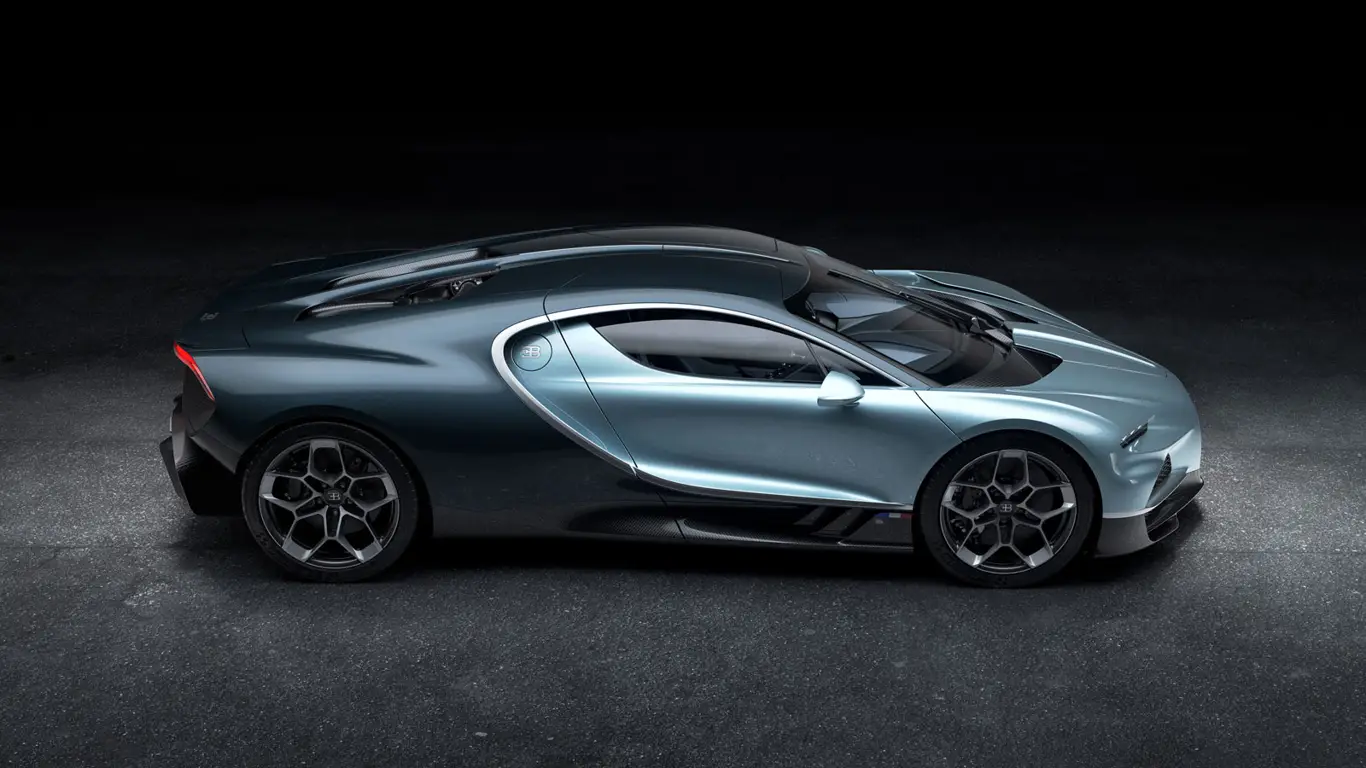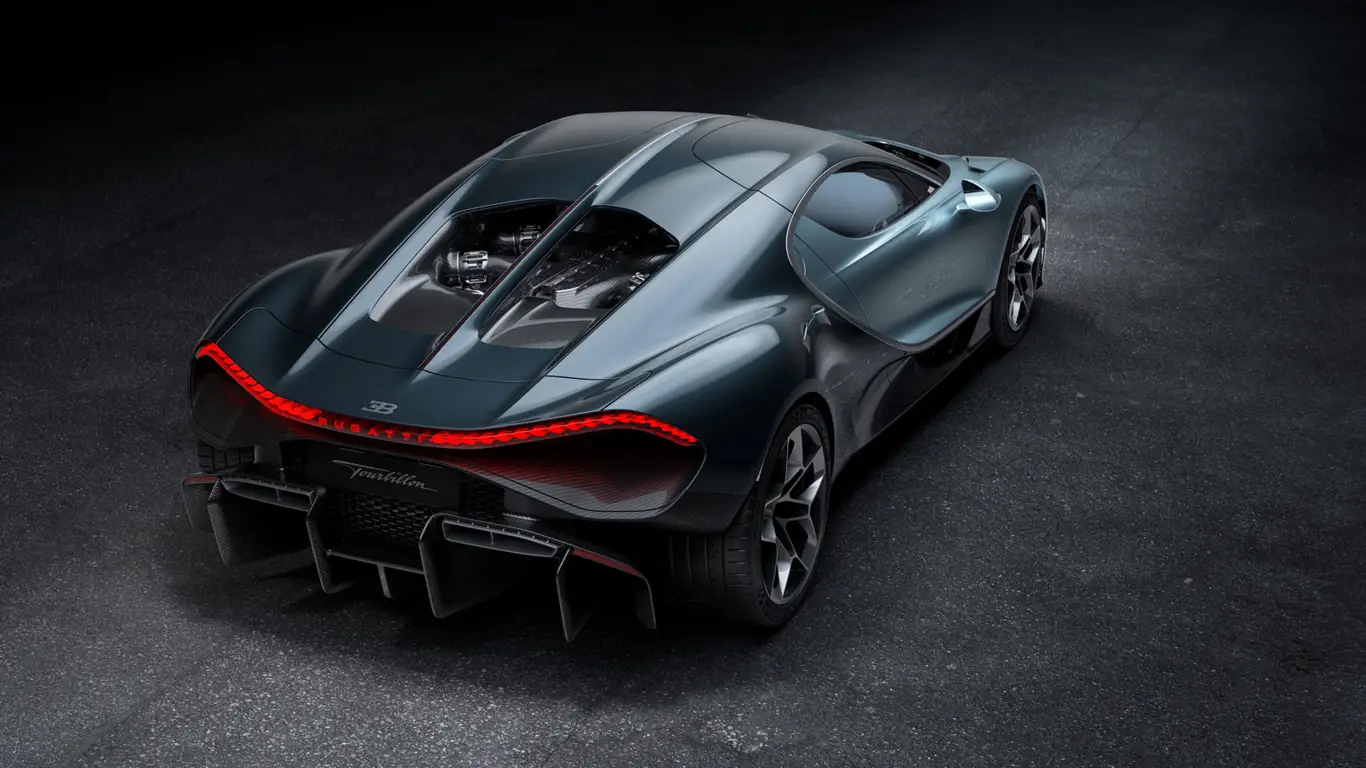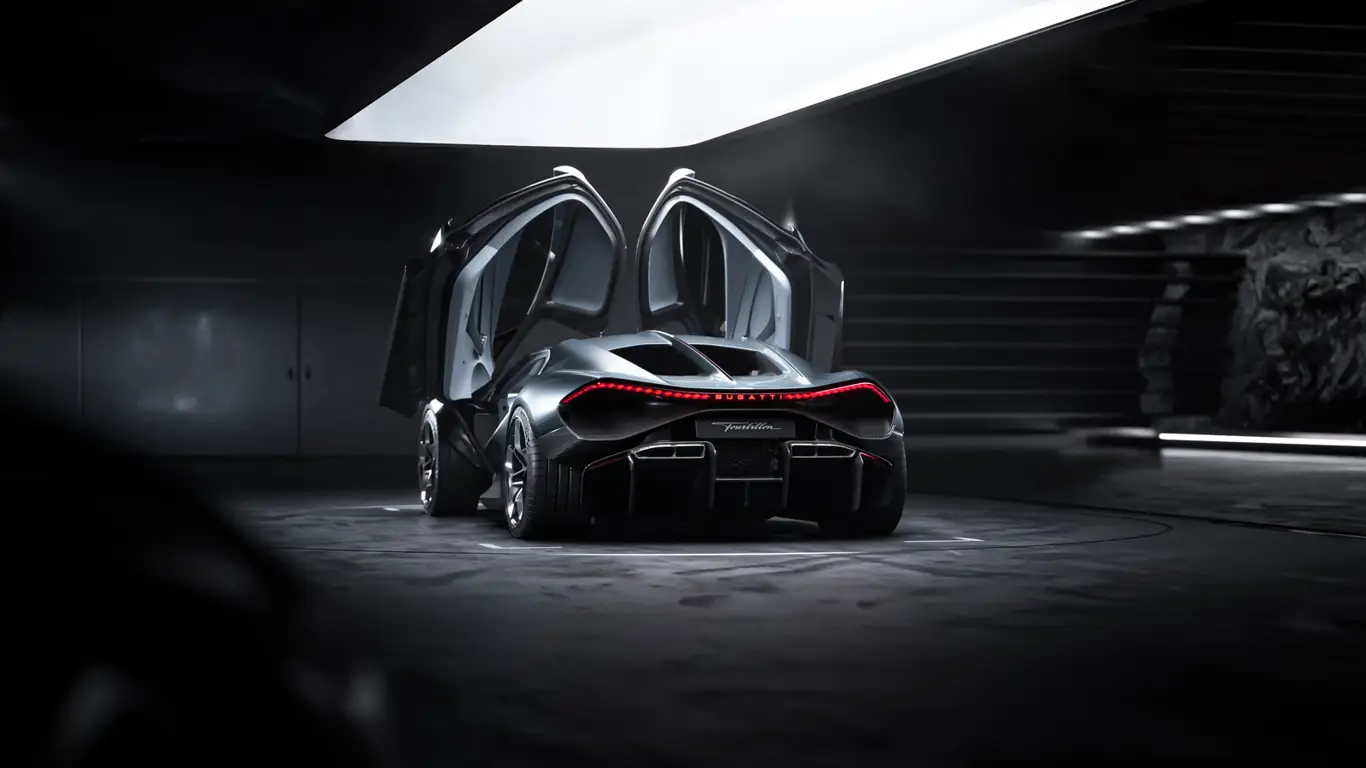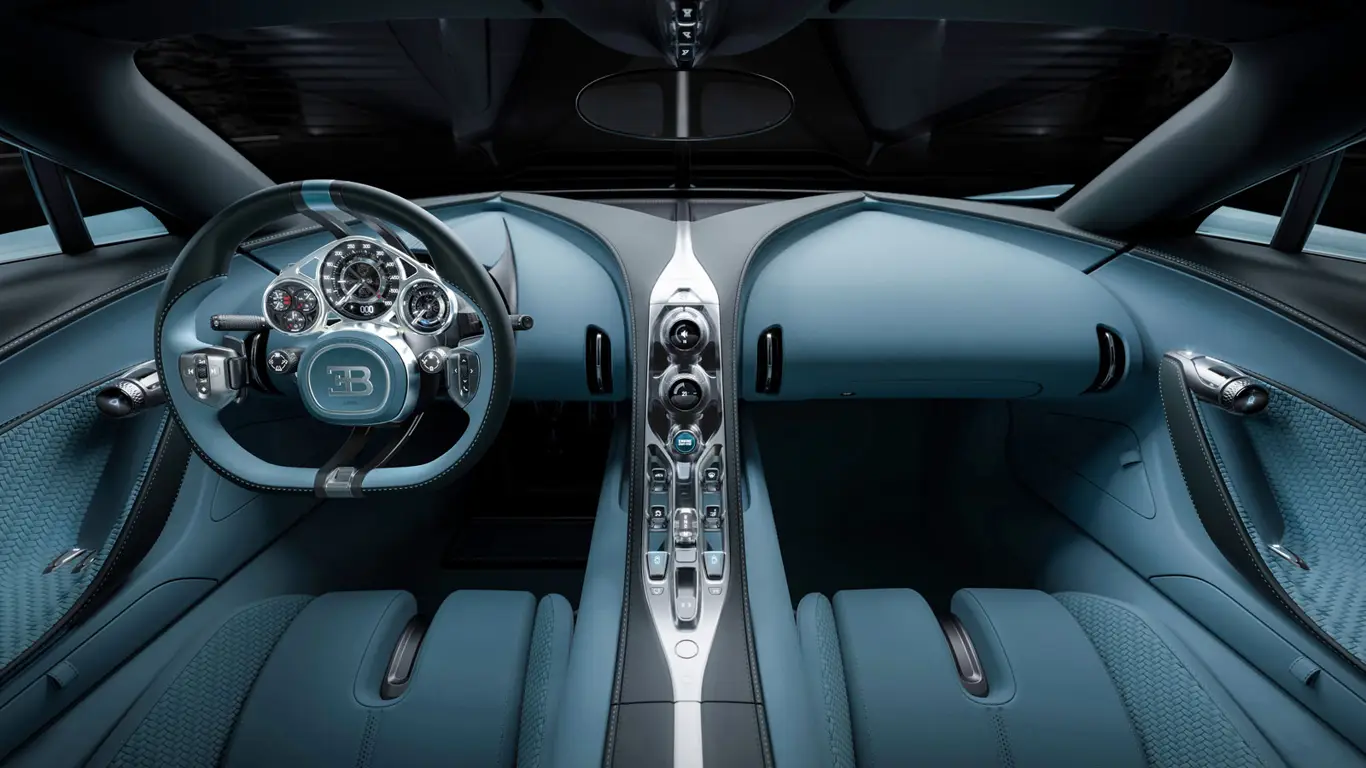Discover the Bugatti Tourbillon: A Lighter, More Powerful Hypercar
The Bugatti Tourbillon, priced over $4 million, features an 8.3L V-16 engine and an 800 hp electric drivetrain.
The Bugatti Tourbillon commands a price tag exceeding $4 million, and its craftsmanship and performance explain why. The instrument cluster is reminiscent of finely tuned mechanical clockwork, while the carbon fiber bodywork exemplifies Bugatti’s signature aesthetic. Beneath this exterior lies an 8.3-liter naturally aspirated V-16 engine, producing a staggering 1,000 horsepower, alongside an electric drivetrain that contributes an additional 800 horsepower.

Advanced Battery and Cooling Technology
The Tourbillon employs an 800-volt, 25.0-kilowatt-hour battery pack that is both capacious and powerful. Unlike traditional electric vehicles that use dedicated cooling channels, Bugatti opts for direct cell cooling. This method circulates dielectric fluid around the battery cells without separate channels, reducing weight. This innovative system has been seen in smaller-volume packs, such as in the all-electric Caterham Seven concept.

High-Power Density Motors
The electric motors in the Tourbillon boast a power density of 6kw/kg, inclusive of inverters and reduction gear. This figure surpasses many standalone electric motors, which typically do not reach this level of efficiency without additional components.

Lightweight V-16 Engine
The naturally aspirated V-16 engine compensates for the hybrid system’s mass by eliminating the quad turbochargers found in the older W-16 engines of the Veyron and Chiron. This reduction in components, such as associated plumbing and intercoolers, results in the engine weighing just 555 pounds, compared to the Chiron’s W-16, which weighs between 882 and 961 pounds.

Structural Innovations and Material Use
The Tourbillon’s chassis construction is another area where weight savings are achieved. The battery pack acts as a structural component within the carbon fiber monocoque, and both front and rear subframes are crafted from thin-walled aluminum castings. Additional weight reductions come from 3D-printed aluminum components and carbon ceramic brakes, which reduce mass at the vehicle’s corners. Even the intricate gauge cluster includes parts made from lightweight titanium.
Не удалось загрузить видео.